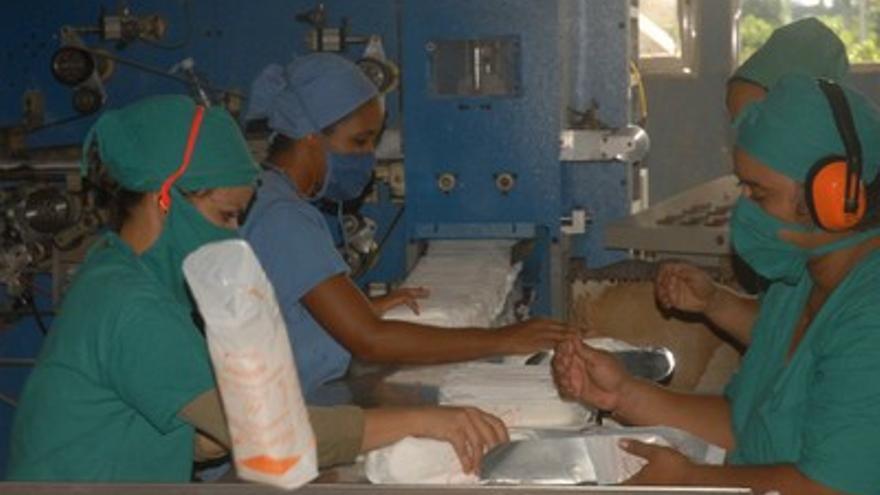
![]() EFE / via 14ymedio, Havana, 16 January 2018 — The small amount of sanitary pads that the Cuban State gives to women of childbearing age each month, their “terrible” quality and the irregularity in deliveries are currently the source of criticisms in the official press of the Island, where many turn to the black market to cover this need.
EFE / via 14ymedio, Havana, 16 January 2018 — The small amount of sanitary pads that the Cuban State gives to women of childbearing age each month, their “terrible” quality and the irregularity in deliveries are currently the source of criticisms in the official press of the Island, where many turn to the black market to cover this need.
An extensive report in the newspaper Juventud Rebelde notes that this is a recurring problem that “over and over again” has led to “the same complaints” and maintains that, although it is a heavily subsidized article, it is used for “a basic hygienic need that does not understand delays in production or obsolete machinery.”
In Cuba, all women of childbearing age are entitled to receive a pack of ten pads per month, for which they pay 1.2 Cuban pesos (just under 5 cents US).
Several women interviewed by the newspaper are annoyed that ten “intimates,” as this product is known in the country, it is not enough to cover the entire menstrual cycle, and criticize that deliveries are often delayed for months.
Meanwhile, the product never fails in the black market, where it is offered at a price more than ten times higher: “In normal times up to ten pesos and when there is a crisis, it’s up to 15 to 20 pesos in Cuban pesos,” says Marta Valdés, 34.
Another alternative is the state stores that sell in hard currency, where a packages of pads are sold at prices from 1 CUC (equivalent to a US dollar 02 24 Cuban pesos), a high cost for someone living on a Cuban average salary, that does not exceed 30 CUC.
“The black market should not be the solution to acquire the demanded product,” says the state newspaper, which titled the story Intimate Tragedy.
The article also cites experts, such as gynecologist Arelis Leon, who explains that the ideal is to change the hygiene pad every four hours during the menstrual period, which means using six pads a day and an average of between 18 and 42 pads for each cycle.
To the problems of supply is added the “terrible” quality of the domestically manufactured product, according to the complaints collected by Juventud Rebelde.
In Cuba there are three factories that make this product and all stopped doing so for lack of raw materials, since of the ten materials used in the production, eight are imported from countries such as Spain, Italy and China, said Emma Hernández, the general director of the state manufacturing company Mathisa.
The delay in production accumulated by this stoppage, makes it “impossible for the company to catch up on the loast production during the months in which the factories were stopped.”
The company also attributed the defective products to “human errors,” because the quality review and packaging are done manually.
“There are still no definitive solutions, at least in the coming months,” the newspaper said.
_____________________________
The 14ymedio team is committed to serious journalism that reflects the reality of deep Cuba. Thank you for joining us on this long road. We invite you to continue supporting us, but this time by becoming a member of 14ymedio. Together we can continue to transform journalism in Cuba.
